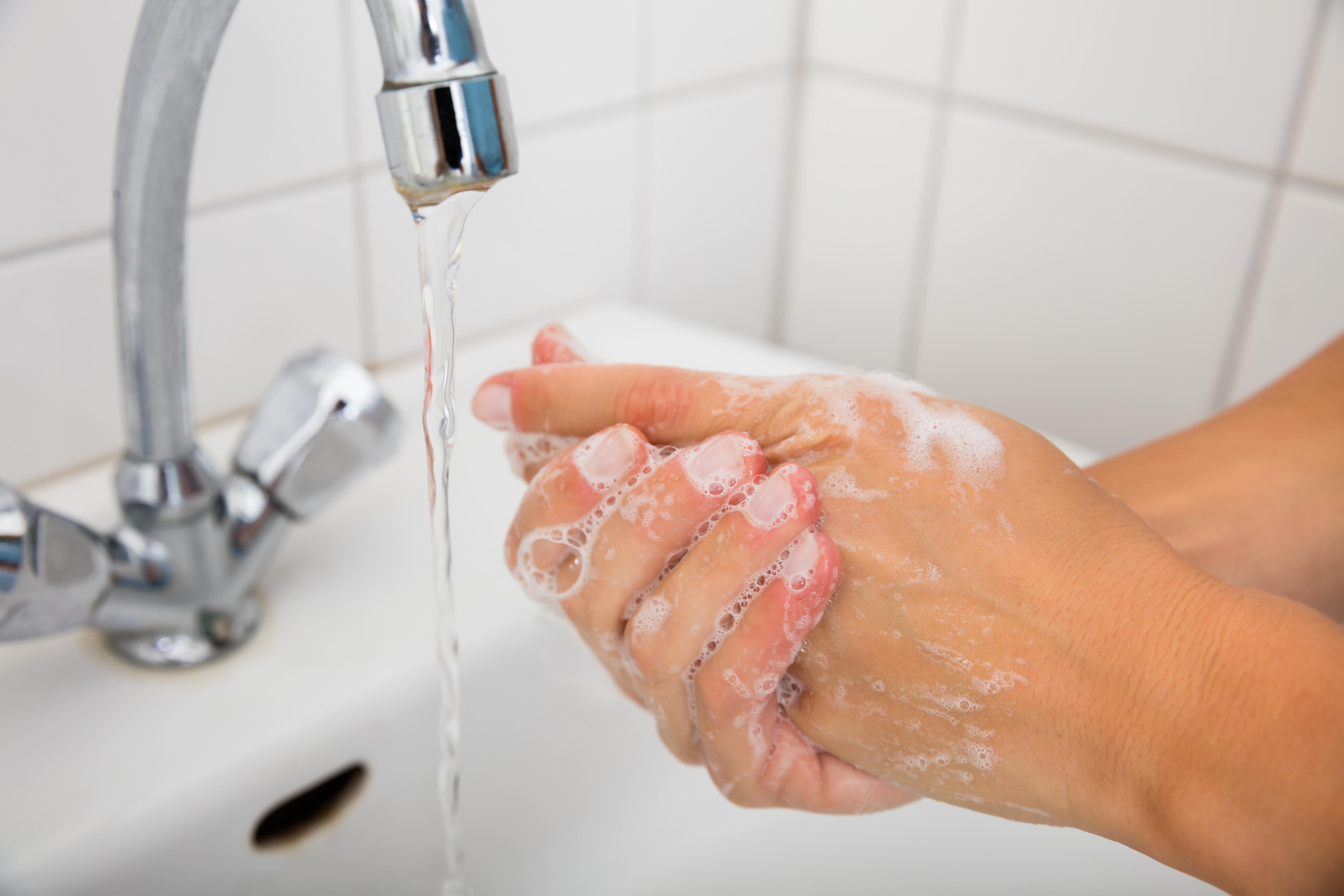
To evaluate if hand washing with antimicrobial soap affects hand to nose transmission of Streptococcus pneumoniae leading to nasal colonisation
We are trying to understand more about bacteria called Pneumococcus and how we can reduce the spread of this bacteria.
Small numbers of these bacteria are often found in the nose which is called ‘colonisation’. Usually, the carrier does not know the bacteria are there. In most adults, this is present at least once per year and more often in children. Mild infections with pneumococcus are very common, such as ear infections in children.
But pneumococcus can also infect the lung (causing pneumonia) or the brain (causing meningitis) or the blood (causing sepsis). These severe infections are very uncommon in healthy adults: about 50 cases in Liverpool per year. Very young children and adults who are elderly or those who have other illnesses are more likely to become ill. We have recently carried out a study which showed that these bacteria can be carried on the hands and then move into the nose by rubbing the nose or picking your nose. This movement then resulted in ‘colonisation’ of the bacteria in the nose in around 20% of the study participants.
This reinforces the need for good hand washing especially by those that are more at risk of becoming unwell from these bacteria such as the elderly. This is the first time a study has shown that these bacteria are spread from the hands into the nose. We wanted to use this opportunity to test an anti- bacterial hand soap to ensure it can reduce this movement. In this study, we will test a soap called Lifebuoy made by Unilever to test if hand washing with this will reduce the likelihood of transmission of pneumococcus from hands into the nose causing ‘colonisation’.
We have already studied the effect of putting small numbers of the bacteria into the nose of healthy volunteers: more than 800 volunteers have been safely studied.
Would you like to take part in our research?
The information leaflet attached tells you how you could take part. A member of our team will also discuss it with you: please ask us if you have questions. You may want to talk to other people about the study: please do so. Take your time to decide if you want to be involved.
If you would like to take part in our research, we are looking for adult volunteers who are fit and healthy. We check for reasons which may put you at higher risk from the study. If we find any reason you may be at higher risk of infection, then we will not invite you to take part.
Text: 2vol2 to 88802
Email: 2volresearch@lstmed.ac.uk
Tel: 0151 706 3381